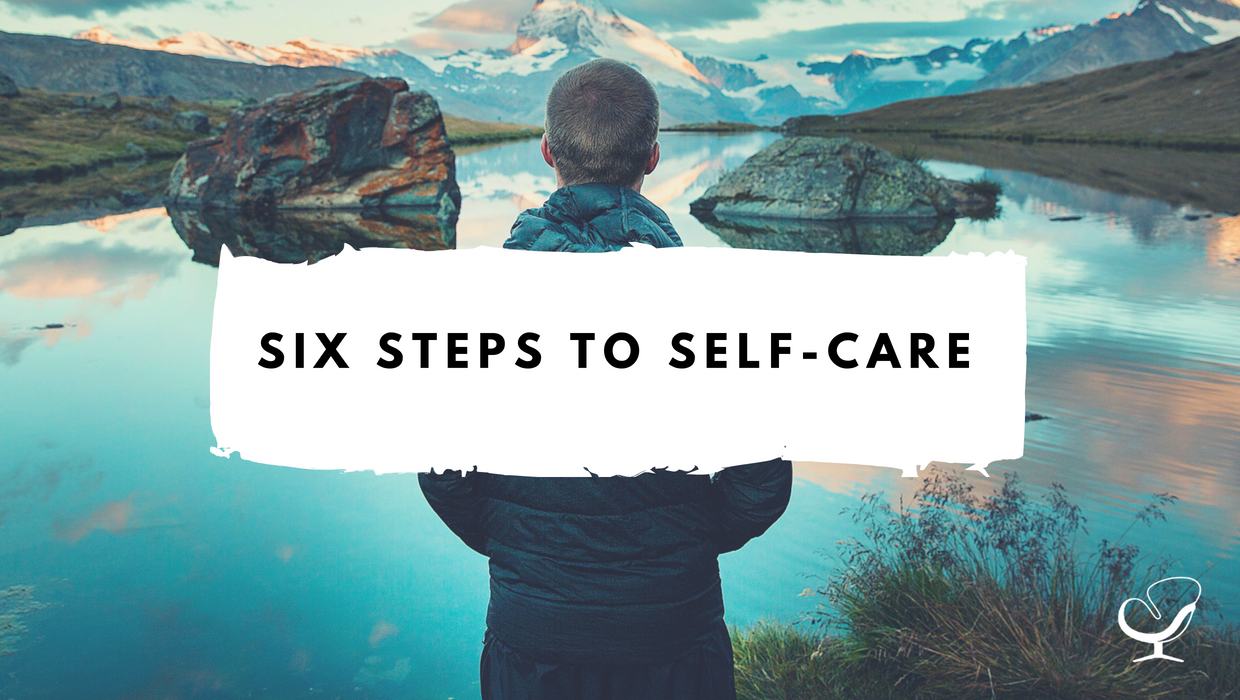A lot has been written on the topic of self-care…so much so that it may seem almost trite to talk about it. So many therapists suffer from burnout, secondary or vicarious trauma, and others leave the profession because they have trouble exercising healthy boundaries with clients. The saying goes that I can’t give to others what I don’t already have, and that is so true when it comes to the profession of counseling and psychotherapy.
The Catch-22 of Our Profession
So here you are, a professional counselor who has devoted your life to helping others, and you find you have trouble with self-care. In the selfless devotion to being of service to others you have forgotten yourself. It’s a subtle double-bind we find ourselves in when we forget that self-care is necessary for being able to help and be of service to others. Yet it has been programmed into many of us from an early age to think of others and to put others first; that it is somehow selfish and self-centered to think of ourselves first. Maybe the thing that is being overlooked that you need to be doing this work you are doing, but you also need to be taking care of yourself. Imagine that?!
The Six Steps:
Here is my rendition of six steps to implement and practice self-care in your life to be able to stay in the counseling profession. These aren’t exhaustive and they may go by other names, but these are ones I see as essential and try to practice in my own life and career. My wife might tell you I am a little too disciplined with these, but they work for me.
1. Get Enough Rest Each Day
I didn’t say sleep because this is not totally within our control. If you find you can’t sleep at night for whatever reason, have a way of relaxing with meditation, relaxation exercises, or something similar so that you are not obsessing about your clients or their issues in the overnight hours.
2. Eat a Balanced Diet
By now, you probably know what you ‘should be’ eating that this doesn’t require me sounding like your mother to tell you that. The idea here is to avoid foods you know aren’t good for you as much as possible, and try to work in foods that are rich in nutrients. Include those that have Omega-3 fatty acids, or at least a supplement that includes this for brain health. You have to do a lot of thinking with your job!
3. Get Enough Exercise Each Week
This includes a balance of aerobic and resistance exercise that is appropriate for you. The more you enjoy it, the better! The important thing is to have a regimen you can stick to. This is so important to help deal with the stress of our work.
4. Utilize Therapy for Yourself (as Practicable)
If you can do this, getting therapy yourself will give you more ability to understand your clients, not just in a clinical way, but in a deeper way of having wrestled with issues of your own. When my brother was going through his own psychoanalytic training coming out of college, he had to have his own therapy as part of the training (and even in his graduate program(s)). I have utilized this as well to give me a better ability to process my own emotional reactions to clients and to just be a better clinician in general. It is part of what drew me to the profession.
5. Have a Way to Process Negative Emotions
This could be an offshoot of the previous one, but it can function independently of getting your own therapy. I actually use one that I also practice as a therapy technique, but you can use whatever works for you. Be it Tapping (Emotional Freedom Technique), mindfulness, or some other way of getting these out of your system so you don’t affect your clients negatively because of it. Find something that works for you and use it as often as needed.
6. Connect with Others…Consistently
This might happen in a consultation group, but it’s not that likely. This is a group just for you, not to talk about clients. You may be able do that all day long. This is a supportive group that can help you to deal with your own experience of isolation as a private practice counselor or therapist. You tell your clients to go to support groups. Having one of your own helps you to practice what you preach. I belong to a support group of other therapists who have similar issues. It may take time to find one, but it is worth the search.
So there you have it. Self-care in a nutshell. Isn’t it good you don’t have to worry about it now? The hard thing is to work most or all of these into your habit life so you know to carve out blocks of time to squeeze them in. I don’t think all of these are essential all the time, but the more you can practice these, the more you are likely to be able to stay in the profession for the long haul
I hope to be doing this into my senior years, but as long as I’m practicing good self-care, that can basically be up to me. In any case, best wishes on your path to self-care in the service of others!
 Scott Kampschaefer, LCSW is a private practice therapist in Austin, Texas. He has an extensive background in working with depression, anxiety, and bipolar disorder at a clinic for older adults with these disorders in Austin. He now works with adults and adolescents of all ages in private practice. Find out more about Scott here: https://www.scottkampschaeferlcsw.com/
Scott Kampschaefer, LCSW is a private practice therapist in Austin, Texas. He has an extensive background in working with depression, anxiety, and bipolar disorder at a clinic for older adults with these disorders in Austin. He now works with adults and adolescents of all ages in private practice. Find out more about Scott here: https://www.scottkampschaeferlcsw.com/

